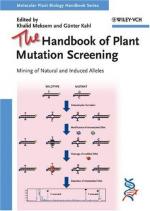|
This section contains 440 words (approx. 2 pages at 300 words per page) |

|
A fixed allele refers to a form of a gene (allele) carried by all members of a population at all loci for that particular gene. Accordingly, with regard to a fixed allele, all individuals within a population will be homozygous for that allele and no other alleles of that particular gene will exist within the population.
Because alleles refer to differing forms of a particular gene that controls a specific character or trait, when allele fixation takes place within a population there are no alternative forms of the gene available to subsequent offspring. Aside from mutational changes, once an allele is fixed within a population, the normal laws of Mendelian inheritance dictate that all future generations will carry only that allele.
Organisms in the diploid state (e.g., genetically normal humans) normally carry two alleles, one at a specific place (gene locus) on each of two...
|
This section contains 440 words (approx. 2 pages at 300 words per page) |

|


